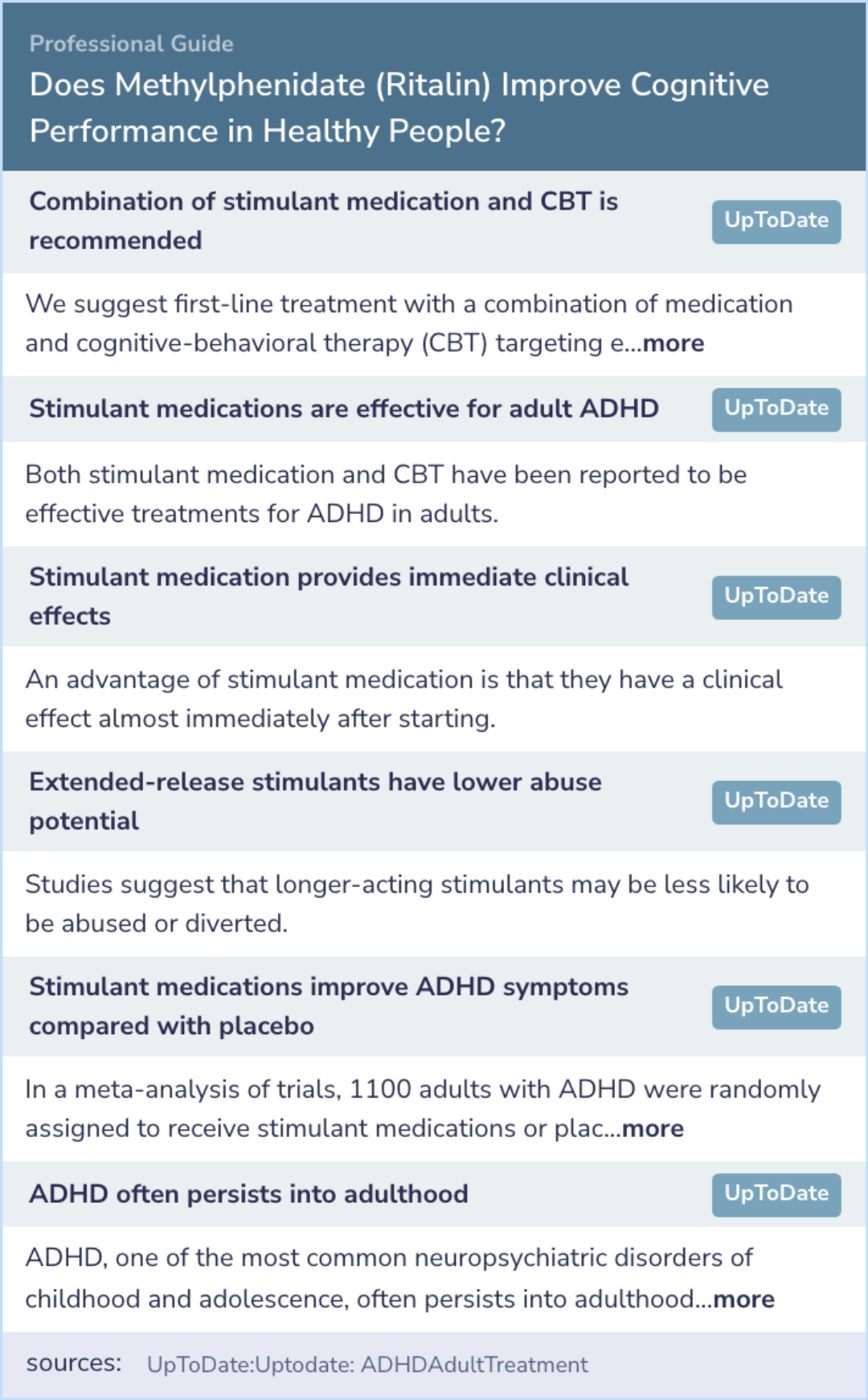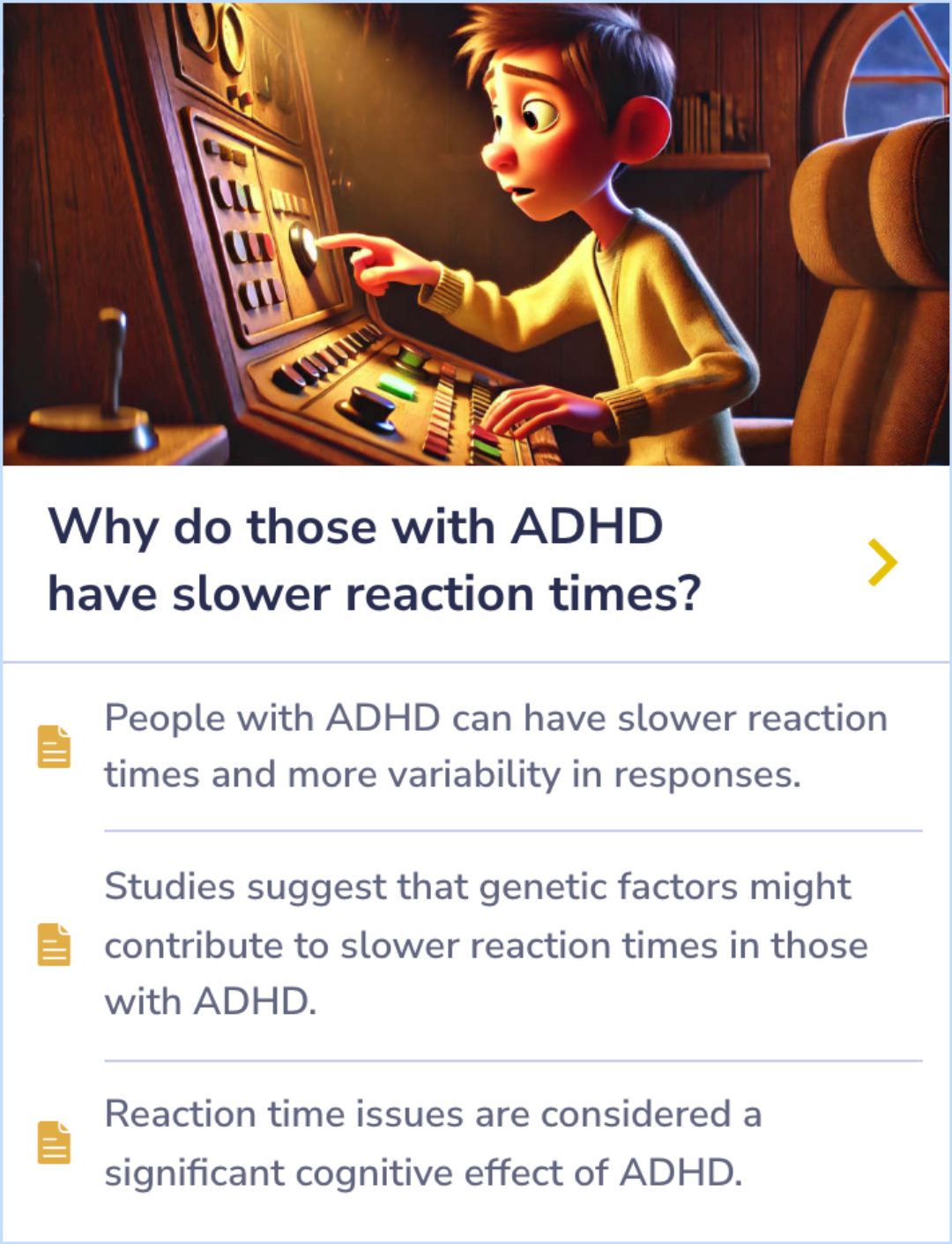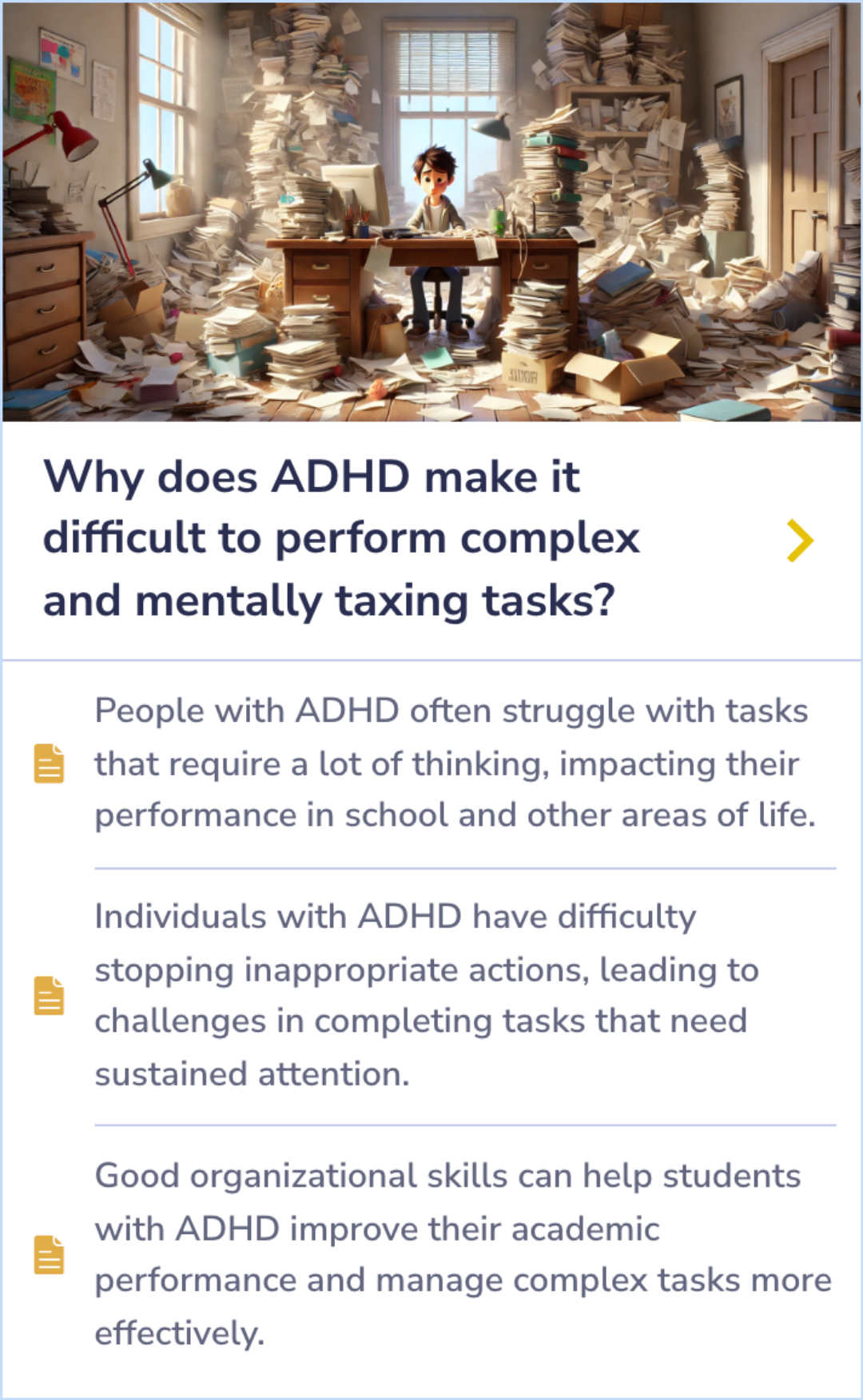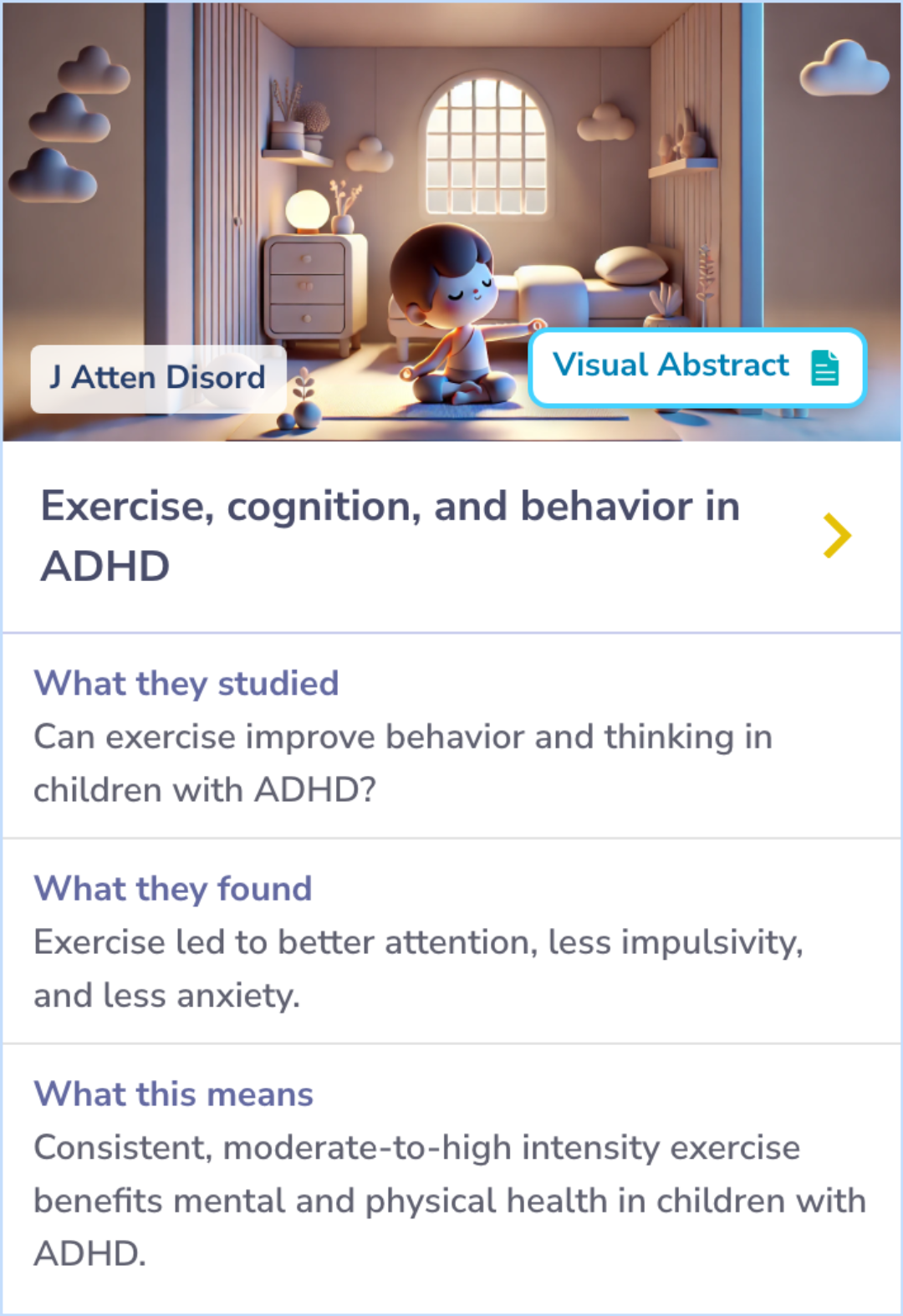Ritalin Paper Database
Visual Abstract
Cognitive effects of methylphenidate in healthy volunteers: a review of single dose studies
Does Methylphenidate (Ritalin) Improve Cognitive Performance in Healthy People?
October 18, 2024
author
Linssen AM, Sambeth A, Vuurman EF, Riedel WJ
journal
Int J Neuropsychopharmacol
Date Published
2014 Jun
Why link to a visual abstract?
What is a visual abstract?
Original
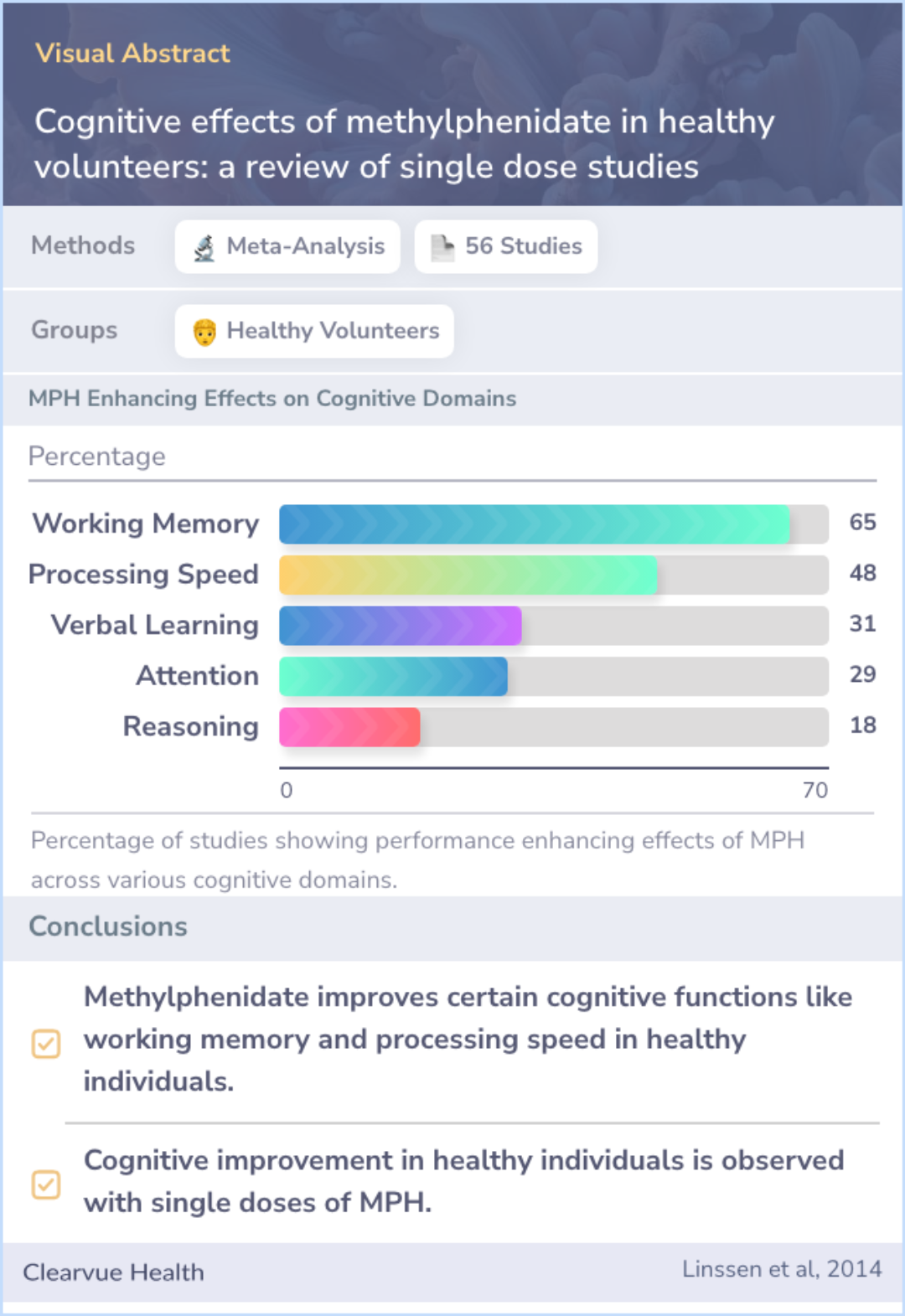
Study Summary
🔬
What They Studied
The researchers wanted to find out if methylphenidate (MPH) improves cognitive performance in healthy people.
💡
What They Found
They found that single doses of MPH improve working memory and speed of processing in healthy people, and to a lesser extent, verbal learning and memory, attention, vigilance, and reasoning.
📚
What This Means
These findings suggest that MPH enhances working memory and processing speed in healthy individuals, aligning with current evidence that it impacts ADHD and cognitive functions.
Study Summary
Study Overview
Abstract: background
Methylphenidate (MPH), a stimulant drug with dopamine and noradrenaline reuptake inhibition properties, is mainly prescribed in attention deficit hyperactivity disorder, is increasingly used by the general population, intending to enhance their cogni...more

Study Summary
Methods
The researchers reviewed studies to determine the effectiveness of methylphenidate (Ritalin/Concerta) in boosting cognition. They evaluated how many studies showed improvements in different areas like memory and processing speed. Each study was analyzed for its findings.
Additionally, they looked at the effects of different doses—low, medium, and high—to see if there’s a relationship between the amount taken and improvements in cognitive performance.
Additionally, they looked at the effects of different doses—low, medium, and high—to see if there’s a relationship between the amount taken and improvements in cognitive performance.
Abstract: methods
We present a novel way to determine the extent to which MPH enhances cognitive performance in a certain domain. Namely, we quantify this by a percentage that reflects the number of studies showing performance enhancing effects of MPH. To evaluate whe...more

Study Summary
Results
The review found that single doses of methylphenidate (Ritalin/Concerta) can improve cognitive performance in healthy individuals, particularly in working memory (65% of studies) and speed of processing (48%). It also shows smaller improvements in verbal memory and attention.
However, the drug does not seem to affect visual memory. The effects are also dose-dependent, meaning that the amount of the drug can impact how well it works, depending on the cognitive task.
However, the drug does not seem to affect visual memory. The effects are also dose-dependent, meaning that the amount of the drug can impact how well it works, depending on the cognitive task.
Abstract: results
The studies reviewed here show that single doses of MPH improve cognitive performance in the healthy population in the domains of working memory (65% of included studies) and speed of processing (48%), and to a lesser extent may also improve verbal l...more
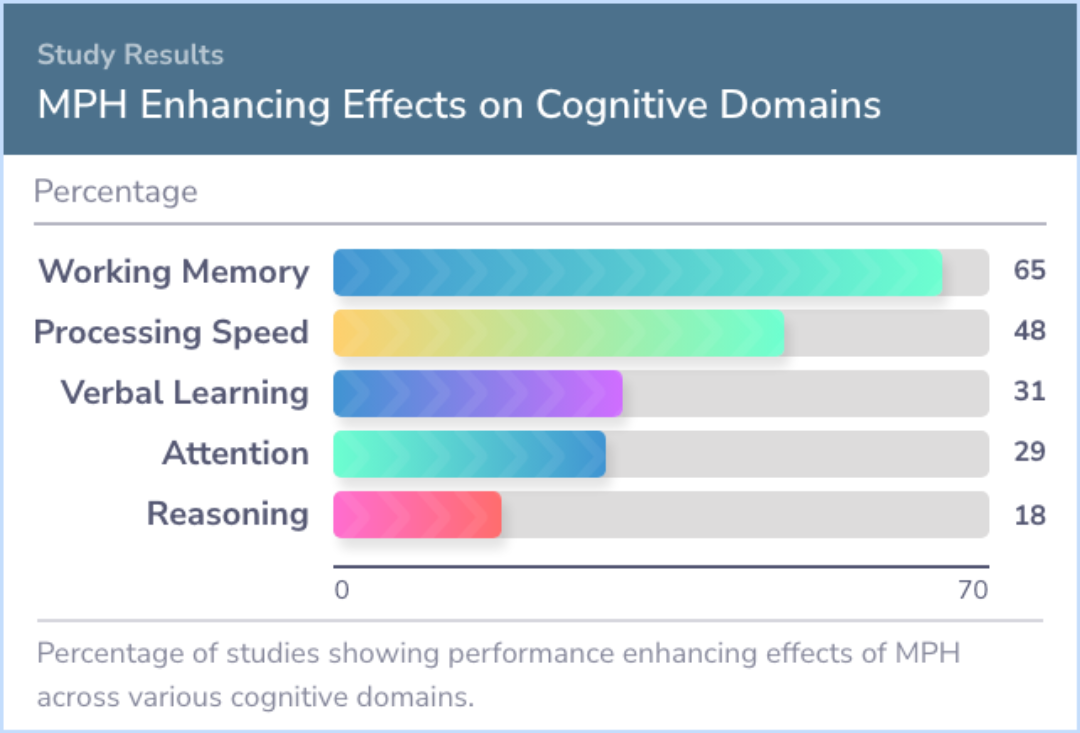
Study Summary
Conclusions
Although methylphenidate (Ritalin/Concerta) can improve cognitive performance, it is also associated with potential risks, including side effects and the possibility of abuse. The findings suggest that these risks need to be carefully weighed against the potential benefits.
Future studies should focus on further evaluating the drug’s benefits and risks, paying special attention to the specific outcomes related to cognitive enhancement.
Future studies should focus on further evaluating the drug’s benefits and risks, paying special attention to the specific outcomes related to cognitive enhancement.
Abstract: conclusions
MPH use is associated with side effects and other adverse consequences, such as potential abuse. Future studies should focus on MPH specifically to adequately assess its benefits in relation to the risks specific to this drug.
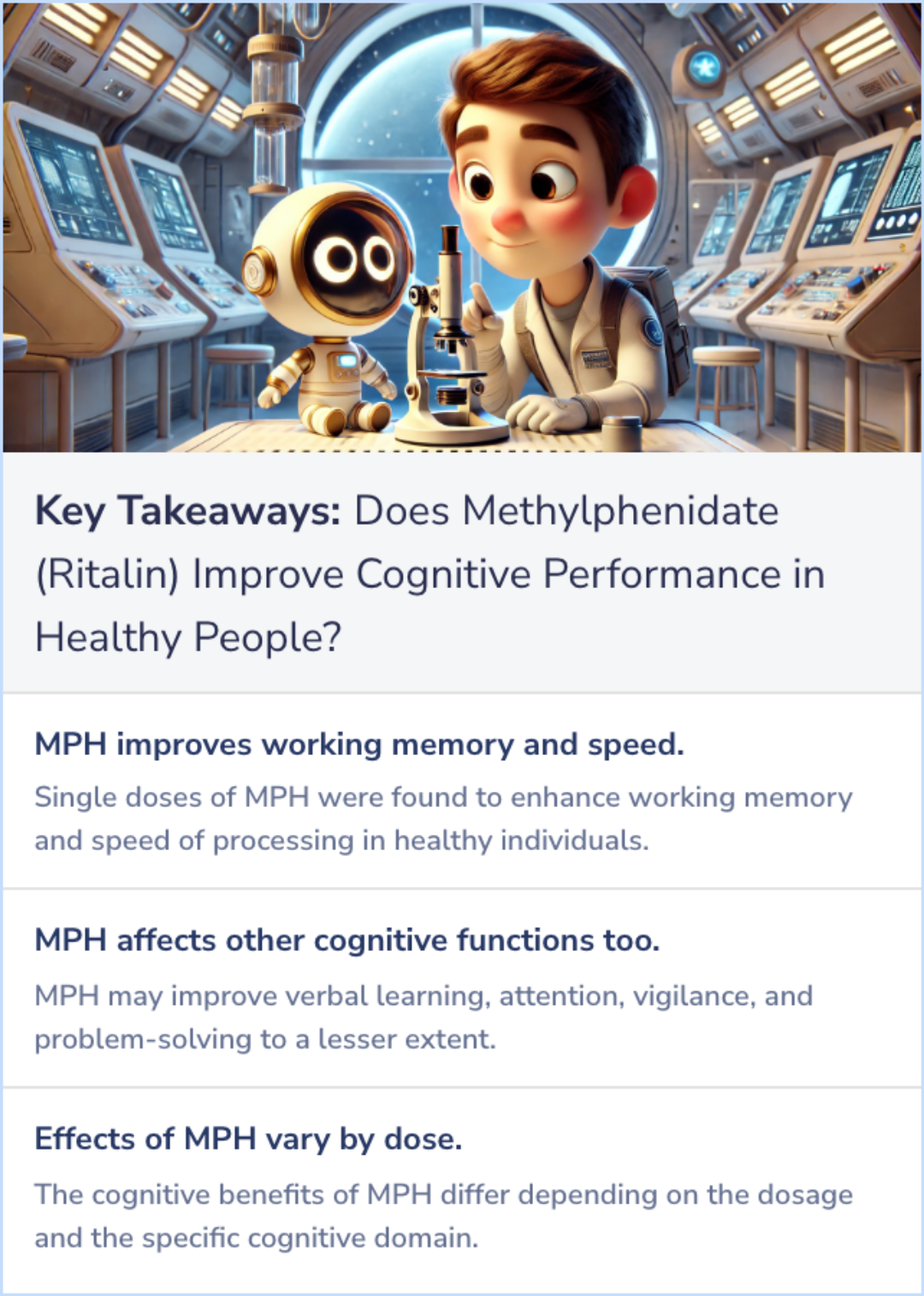
Background Information
Patient Guide
🧠
Mechanism of Action
Blocks norepinephrine and dopamine reuptake, increasing their synaptic concentration, affecting cognitive domains.
💊
Cognitive Enhancement
Off-label use for cognitive enhancement is increasing despite primary approval for ADHD and narcolepsy.
👀
Monitoring for Side Effects
Regular monitoring for cardiovascular, psychiatric, and growth issues is vital when using methylphenidate.
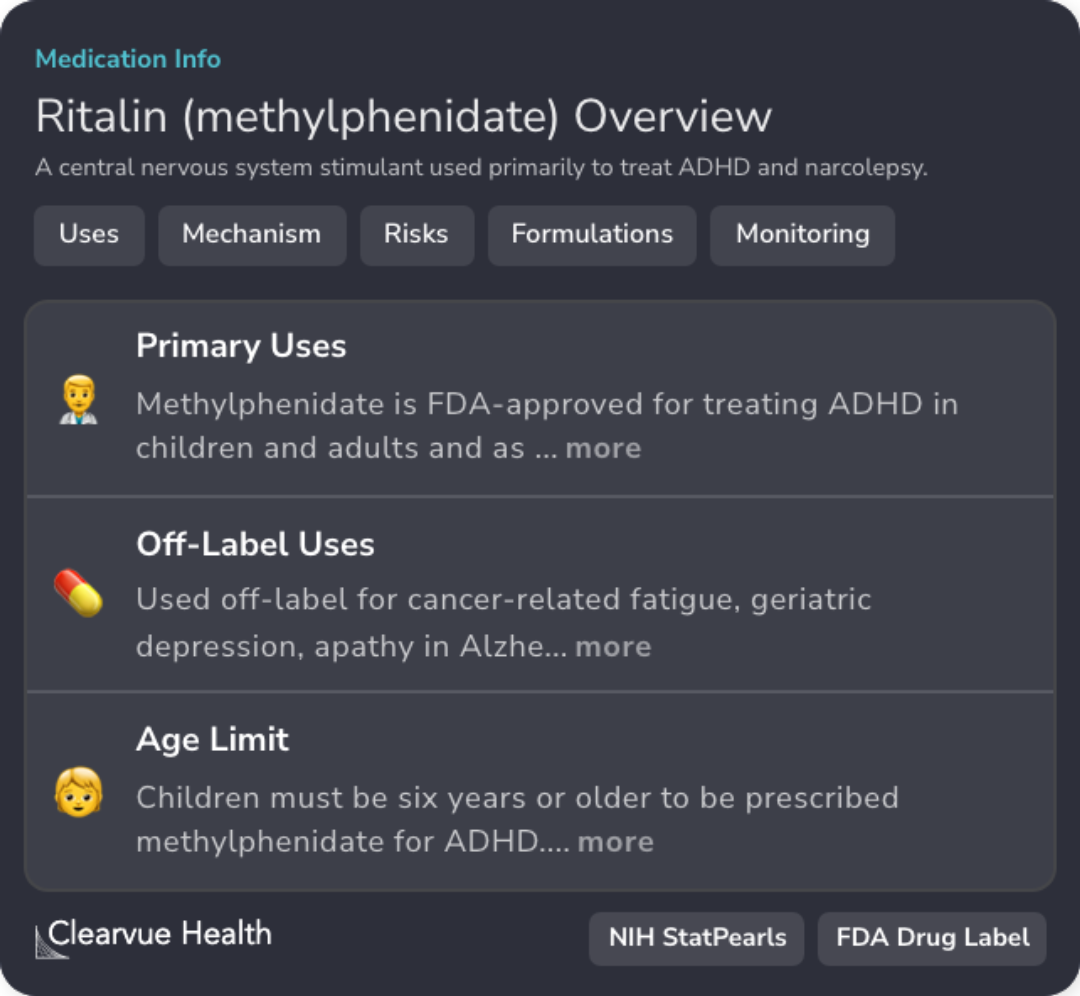
Professional Guide
Expert Opinion: Does Methylphenidate (Ritalin) Improve Cognitive Performance in Healthy People?
The findings suggest that MPH can enhance certain cognitive functions in a healthy population, primarily working memory and speed of processing.
This aligns with the broader clinical understanding that ADHD, a common neuropsychiatric disorder, frequently persists into adulthood, necessitating ongoing intervention.
Current professional guidelines recommend combining stimulant medications with cognitive-behavioral therapy (CBT) to target executive dysfunction in adults.
Stimulant medications are shown to be effective and provide immediate clinical benefits, which is particularly relevant given the dose-dependent effects of MPH on cognitive domains highlighted in the abstract.
Furthermore, meta-analyses suggest stimulants have greater short-term efficacy compared to nonstimulants.
Studies also indicate that extended-release stimulants may have a lower potential for abuse, which could be significant when considering long-term ADHD management strategies.
This aligns with the broader clinical understanding that ADHD, a common neuropsychiatric disorder, frequently persists into adulthood, necessitating ongoing intervention.
Current professional guidelines recommend combining stimulant medications with cognitive-behavioral therapy (CBT) to target executive dysfunction in adults.
Stimulant medications are shown to be effective and provide immediate clinical benefits, which is particularly relevant given the dose-dependent effects of MPH on cognitive domains highlighted in the abstract.
Furthermore, meta-analyses suggest stimulants have greater short-term efficacy compared to nonstimulants.
Studies also indicate that extended-release stimulants may have a lower potential for abuse, which could be significant when considering long-term ADHD management strategies.
Evidence Summary
ADHD and Variability in Reaction Times
Building upon the paper's exploration of MPH's effects on different cognitive domains, individuals with ADHD often experience slower and more variable reaction times.
These differences are potentially influenced by genetic factors.
This cognitive aspect is an important consideration when evaluating the overall impact of ADHD.
These differences are potentially influenced by genetic factors.
This cognitive aspect is an important consideration when evaluating the overall impact of ADHD.
Evidence Summary
Strategies to Aid Task Management in ADHD
Building upon the findings that MPH enhances cognitive functions across various domains,
individuals with ADHD face challenges with complex tasks due to difficulties in response inhibition and sustained attention.
Implementing organizational strategies and structured support can significantly enhance their ability to manage these tasks and improve academic performance.
individuals with ADHD face challenges with complex tasks due to difficulties in response inhibition and sustained attention.
Implementing organizational strategies and structured support can significantly enhance their ability to manage these tasks and improve academic performance.
Evidence Summary
Exercise and Cognitive Function in ADHD Children
Building upon the analysis of MPH's effects on cognitive performance, a 10-week exercise program demonstrates considerable improvements in children with ADHD.
Improvements include better attention, reduced impulsivity, and decreased anxiety.
This suggests exercise positively impacts both mental and physical well-being in children with ADHD.
Improvements include better attention, reduced impulsivity, and decreased anxiety.
This suggests exercise positively impacts both mental and physical well-being in children with ADHD.
